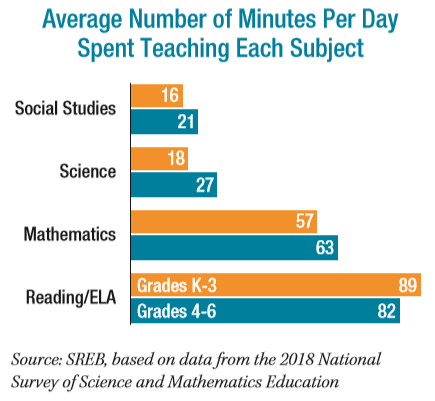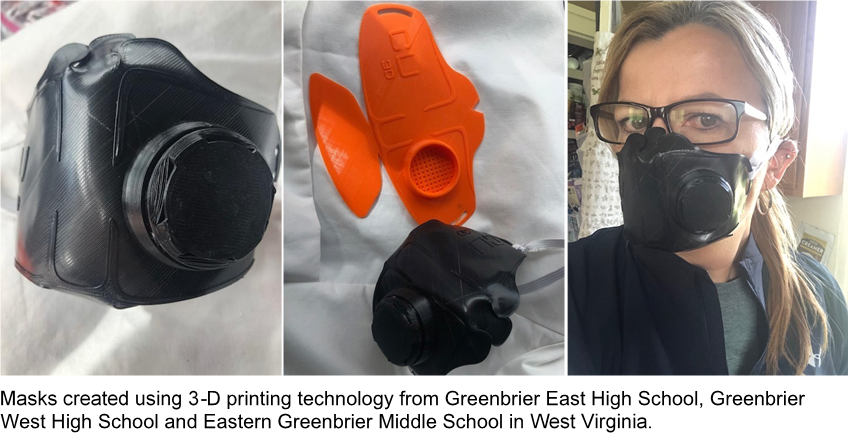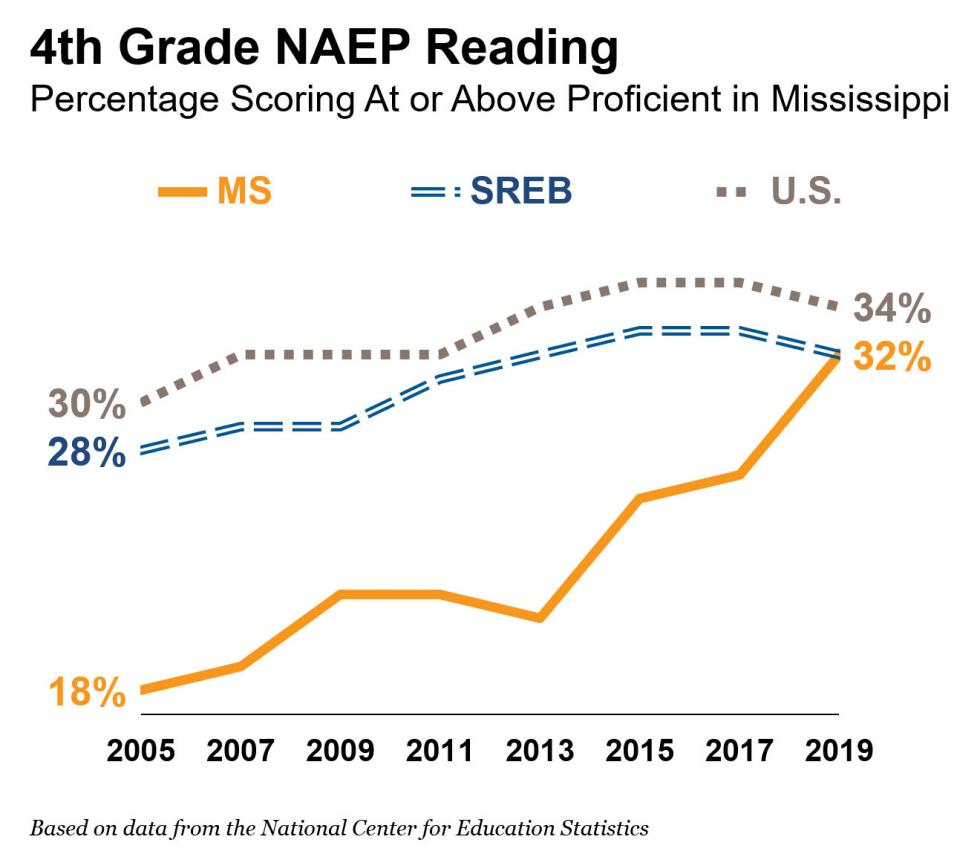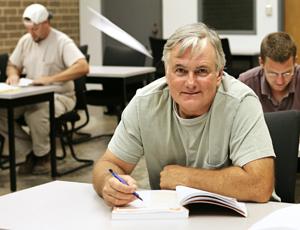Blog Main
Promoting Student Collaboration in the Age of COVID-19
 As schools and districts prepare for
the new year, student and staff safety is top of mind. Many are
buying extra cleaning supplies and developing protocols for
social distancing, wearing masks and proper hygiene.
As schools and districts prepare for
the new year, student and staff safety is top of mind. Many are
buying extra cleaning supplies and developing protocols for
social distancing, wearing masks and proper hygiene.
At SREB, we hear daily from teachers and leaders in search of strategies for delivering quality instruction while meeting safety guidelines. They ask:
“How do we reconnect with “lost” students who lacked access to online learning this spring?”
“Will social distancing require teachers to lecture to students sitting in rows?”
‘Wireless on Wheels’: Rural District Takes Wi-Fi on the Road
Louisa County, Virginia, sprawls across the vast countryside between Richmond and Charlottesville. Only 5,000 students attend the county’s public schools, even though it’s more than an hour’s drive from one end of the county to the other.
High-speed internet, or any internet service at all — cell-phone service, too — doesn’t reach many parts of the county.
When the schools were forced online in March by the COVID-19 crisis, county school leaders wrangled with how to help more students and families get online for class.
Technology Advice for Schools and Districts in the COVID-19 Era
Online or Not: Four Actions for Quality Instruction of Elementary Students
“I learned how to support all of my students, no matter what format I’m asked to teach in — even those students I thought we could never serve outside school walls.”
 That’s what an elementary teacher
told me when I asked her what positives emerged from the shift to
remote learning this spring.
That’s what an elementary teacher
told me when I asked her what positives emerged from the shift to
remote learning this spring.
As we prepare to enter the new school year, one thing is certain — education is not going to look the same. The uncertainty of these times offers us opportunities to create a better experience for each of our elementary students, especially those with special needs, such as students with special needs, English language learners and students who need Tier 2 or Tier 3 instructional supports.
Six Steps to Improve Your Online and Blended Instruction
“I just saw where we will have kids in class only two days a week and the rest will be virtual. I don’t think I can handle it.”
“All students will be online to begin the year… I cannot go through what happened this spring again.”
I saw comments like these in an online teachers’ forum when districts began issuing their school reopening plans. Although reactions like these are common, there’s no need to panic.
Keeping communities informed about schools during COVID-19
Suggestions from SREB task force, communications experts
How can states, districts and schools keep clear lines of communication open with their families and students as schools plan for reopening this fall?
“Communication is a critical aspect to getting our schools reopened,” said SREB President Stephen Pruitt, “for parents to feel comfortable with bringing their kids back to school.”
How colleges can better serve student-parents
One in five U.S. undergraduates now raising children
More of today’s college students are raising children while in school, and they’re a larger, faster-growing group than many colleges institutions and policymakers realize.
Nicole Lynn Lewis, the founder and CEO of Generation Hope, joined SREB for a webinar on June 11 to discuss how institutions can build and strengthen support for student-parents. Her organization assists teenage parents—men and women—who attend college in Virginia, Maryland and the District of Columbia.
A Long-Term Solution to Teacher Shortages
Finding the Root of the Problem
We’ve all heard the saying “You can’t see the forest for the trees.” When it comes to state policies affecting the teacher workforce, it’s important to see both.
Teachers make life-long impressions on thousands of students — over 3,000 in an average career — and help raise every generation to understand the world and become productive, well-rounded citizens.
Improving Early Science Instruction
Ensuring prepared teachers and engaged students
In the drive to improve students’ reading and math achievement in the elementary grades, science has sometimes fallen by the wayside. This despite widespread acknowledgement of the importance of STEM fields — science, technology, engineering and math — to current and future workforces.
Belonging From a Distance
Protecting the mental health of America’s “loneliest generation”
 Things are tough for college
students right now. The COVID-19 crisis, which has disrupted life
everywhere, is “quite possibly the single most disruptive event
in American higher education in at least a half century,”
according to
the Atlantic, one that has “left students scrambling
to wrangle flights home and pack up their dorm room.”
Things are tough for college
students right now. The COVID-19 crisis, which has disrupted life
everywhere, is “quite possibly the single most disruptive event
in American higher education in at least a half century,”
according to
the Atlantic, one that has “left students scrambling
to wrangle flights home and pack up their dorm room.”
Better Together
 After weeks of struggling with the
fallout of COVID-19 — working remotely, social distancing,
helping neighbors when we can — I’m quite sure no one needs to be
told that we’re living in “unprecedented times.” That seems clear
enough.
After weeks of struggling with the
fallout of COVID-19 — working remotely, social distancing,
helping neighbors when we can — I’m quite sure no one needs to be
told that we’re living in “unprecedented times.” That seems clear
enough.
Our teachers are coping with a digital environment that most were not trained for, trying to maintain their focus on equity to be sure every child has a chance at a quality education, meanwhile managing houses and budgets and families and concerns about their health, as we all are. It’s more than anyone was prepared for.
CTE Centers: Answering the Call for Care Amid COVID-19
Fred Rogers said, “When I was a boy and I would see scary things in the news, my mother would say to me, ‘Look for the helpers. You will always find people who are helping.’” In this unprecedented time of crisis, many are rising to be helpers. All across the United States, healthcare workers are leaving their families and risking their lives to take care of all who are suffering with the coronavirus. Schools and career and technology centers are also coming together to donate much-needed resources and use their equipment to make face masks for those on the front line.
Distance Learning for Rural Schools During Extended School Closures
 As we move further into the
COVID-19 crisis, rural schools across the U.S. are struggling
with how to continue students’ learning amid school closures. In
recent weeks, SREB instruction coaches have been collaborating
with educators in our region on how to deliver learning
virtually, and we’ve learned about the specific challenges rural
schools are facing.
As we move further into the
COVID-19 crisis, rural schools across the U.S. are struggling
with how to continue students’ learning amid school closures. In
recent weeks, SREB instruction coaches have been collaborating
with educators in our region on how to deliver learning
virtually, and we’ve learned about the specific challenges rural
schools are facing.
Online Professional Development Support for Educators
 As we enter our second and third
weeks of school closures and social distancing, I am amazed and
proud of our educators. I see school systems scrambling to feed
children. I see teachers preparing lessons, packets and online
resources. I see principals giving weekly messages, reading
bedtime stories online, leading virtual parades and calling every
teacher for weekly check-ins. I see heroes. But to be
quite honest, I saw these heroes before the advent of COVID-19.
As we enter our second and third
weeks of school closures and social distancing, I am amazed and
proud of our educators. I see school systems scrambling to feed
children. I see teachers preparing lessons, packets and online
resources. I see principals giving weekly messages, reading
bedtime stories online, leading virtual parades and calling every
teacher for weekly check-ins. I see heroes. But to be
quite honest, I saw these heroes before the advent of COVID-19.
Right now, our teachers need extra support.
Navigating the Road of E-learning
The last two weeks have certainly required flexibility, innovation and problem-solving for educators not just in SREB states but across the nation and the world. Those of us at SREB who support teachers and district- and school-based coaches have been flooded with emails, texts and phone calls asking for help. In an effort to support all of you from afar, we offer some tips and strategies for how you can navigate the road of e-learning.
Virtual Labs for STEM and CTE Teachers and Students
We know that this is a challenging time for teachers across the country. Many of you have been plunged into the world of virtual learning without a lot of time to prepare. Following sudden school closures due to the COVID-19 pandemic, you’ve had to move quickly to shift your carefully planned lessons online so your students can continue learning at home. And those of you who are STEM and career and technical education teachers in particular face unique challenges as you work to adapt hands-on learning experiences to a virtual format.
A Path to College and Career
Stepping Stones for States
A thriving economy and a workforce prepared for it will increasingly demand that more adults earn postsecondary credentials. Ensuring that students successfully move from middle grades into high school, then into college or technical education programs, is critical if states hope to boost their adult educational attainment levels.
Thank Goodness for Mississippi
Star NAEP Showing Follows a Long Commitment
“Thank goodness for Mississippi.”
It used to be that this was something you heard from people who were grateful that Mississippi kept their own states from the dubious honor of last place in education rankings. Those folks may not have noticed that, since 2005, Mississippi has been making steady gains.
And now, after Mississippi offered a rare bright spot on the Nation’s Report Card earlier this month, we have a new reason to be thankful for Mississippi: We can learn from their success.
Real progress takes time.
How Can a Roundtable on Education Human Capital Help Your State?
Another school year has started, and nearly every state in the SREB region is facing major human capital challenges including teacher shortages. Schools now face shortages not only in STEM courses and special education but in most subject areas.
Effective Adult Education Programs: A Challenge for States
States face an uphill battle in meeting the needs of adult learners, especially at a time when technology is advancing rapidly. Adults can turn to adult education programs to improve their skills, but enrollments have fallen in recent years.













